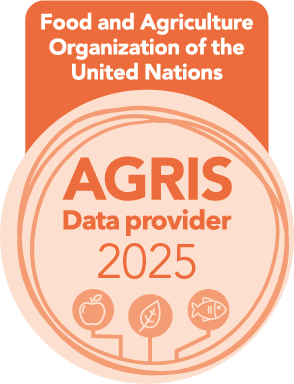

Address: Naberezhnaya Severnoy Dviny, 17, Arkhangelsk, 163002, Russian Federation, Northern (Arctic) Federal University named after M.V.Lomonosov, office 1425
Phone: +7 (8182) 21-61-18
E-mail: forest@narfu.ru
http://lesnoizhurnal.ru/en/
|
The Influence of Quercus robur L. and Juglans rupestris Engelm. Plantations on the Properties of Steppe Soils. P. 91–108
|
 |
Olga E. Klimenko, Nikolay I. Klimenko
UDС
625.77:631.4
DOI:
10.37482/0536-1036-2024-5-91-108
Abstract
The aim of the study has been to determine the condition of Quercus robur L. and Juglans rupestris Engelm. and their influence on the properties of segregated chernozems. The study was conducted in 2020–2021 in the steppe Crimea. The control has been a perennial grass fallow. To characterize the general condition of the trees, a 4-point scale for assessing the condition of the introduced species has been used. Standard methods have been used for soil analysis. A better preservation and a greater number of 50-year old plants in excellent and good condition have been established for Q. robur (67 и 56 %, respectively) compared to J. rupestris (48 и 42 %, respectively) in these environmental conditions, which is explained by the greater adaptive capabilities of oak as an indegenous species. Both tree crops have influenced soil properties. In their phytocenoses, a litter has been formed, more significant under J. rupestris. The dark humus horizon has also turned out to be thicker under the J. rupestris plantation (80 cm) than under the Q. robur plantation and the fallow (72 and 70 cm, respectively). Under Q. robur the soil density has been lower than under J. rupestris by 0.02–0.18 g/cm3. Under the woody plants, the soil structure has improved: the number of lumpy aggregates has decreased, and the number of agronomically valuable and granular particles has increased. The maximum coefficient of structure has been in the soil under the oaks (4.4–6.6), which exceeded the control by 2.5–4.9 times. Under the woody plants, carbonates have been significantly washed out of the soil profile, especially under J. rupestris. The pHH2O value of the alkaline soil under the woody plants has decreased by 0.2–0.4 and has been closely related to carbonate content (r = 0.83–0.91). The humus content under both species has been significantly higher than under the fallow – by 0.30–0.86 %. Afforestation has resulted in the accumulation of total forms of nutrients, to a greater extent under J. rupestris, and the C:N ratio has decreased. Tree species have stored more labile forms of nutrients in the soil. Soil desalination has been noted in the tree cenoses. Thus, J. rupestris and Q. robur are ecologically stable in the conditions of the central steppe of Crimea and can be used to increase forest cover in steppe areas. This will help improve soil fertility.
Affiliation
Nikitsky Botanical Garden – National Scientific Center of the Russian Academy of Sciences, Nikitsky spusk, 52, Nikita urb. settlement, Yalta, Crimea, 298648, Russian Federation; olga.gnbs@mail.ru*, klymenko.gnbs@mail.ru
Keywordsforest plantations, afforestation, Quercus robur L., Juglans rupestris Engelm., chernozem, soil properties, steppe, fertility, Crimea
For citation
Klimenko O.E., Klimenko N.I. The Influence of Quercus robur L. and Juglans
rupestris Engelm. plantations on the Properties of Steppe Soils. Lesnoy Zhurnal = Russian Forestry Journal, 2024, no. 5, pp. 91–108. (In Russ.). https://doi.org/10.37482/0536-1036-2024-5-91-108
References
-
Bezrukova A.S., Kozlovskij B.L., Kuropyatnikov M.V. Study of the Influence of Parkland of the Botanical Garden of the Southern Federal University on the Parameters of the Microclimate. Zhivye i biokosnye sistemy = Live and Bio-Abiotic Systems, 2018, no. 26. (In Russ.). https://doi.org/10.18522/2308-9709-2018-26-1
-
Belyaev A.B. Long-Term Dynamics of the Properties of Leached Chernozems under Different Forest Plantations. Pochvovedenie = Eurasian Soil Science, 2007, vol. 40, pp. 821–829. (In Russ.). https://doi.org/10.1134/S1064229307080030
-
Belyaev A.B. Forest Ecosystems and Their Impact on the Properties and Fertility of Forest-Steppe Soils of the Central Chernozem Region. Trudy instituta geologii Dagestanskogo nauchnogo tsentra RAN = Proceedings of the Institute of Geology of the Dagestan Scientific Center of the RAS, 2014, no. 63, pp. 53–56. (In Russ.).
-
Вадюнина А.Ф., Корчагина З.А. Методы исследования физических свойств почв. 3-е изд., перераб. и доп. М.: Агропромиздат, 1986. 416 с. Vadyunina A.F., Korchagina Z.A. Methods of Studying the Physical Properties of Soils. 3rd ed., revised and enlarged. Moscow, Agropromizdat Publ., 1986. 416 p. (In Russ.).
-
Vazhov V.I. Agroclimatic Zoning of Crimea. Trudy Gosudarstvennogo Nikitskogo botanicheskogo sada = Proceedings of the State Nikitsky Botanical Garden, 1977, vol. 71: Soil and Climatic Resources of Crimea and Rational Placement of Fruit Crops, pp. 92–120. (In Russ.).
-
Vorobyova L.A. Chemical Analysis of Soils. Moscow, Moscow State University Publ., 1998. 272 p. (In Russ.).
-
Galushko R.V., Gorak Yu.S. On the Results of the Introduction of Woody Plants in the Evpatoria Arboretum. Byulluten Gosudarstvennogo Nikitskogo botanicheskogo sada = Bulletin of the State Nikitsky Botanical Garden, 2002, iss. 84, pp. 53–57. (In Russ.).
-
Grigor’ev A.G., Dzetsina A.N. Bioecological Features of Species of the Genus Juglans L. during Their Introduction into the Steppe Crimea. Byulluten Gosudarstvennogo Nikitskogo botanicheskogo sada = Bulletin of the State Nikitsky Botanical Garden, 1987, iss. 62, pp. 59–64. (In Russ.).
-
Gurin P.D., Aparin B.F., Sukhacheva E.Yu. The Influence of Forest Plantations and Long-Term Agricultural Use on the Properties of Southern Chernozems. Vestnik SPbGU. Seriya 3 = Vestnik of Saint Petersburg University. Series 3, 2012, iss. 2, pp. 109–119. (In Russ.).
-
Trees and Shrubs of the USSR: Wild, Cultivated and Promising for Introduction: in 6 vol. Vol. II. Angiosperms. Ed. S.Ya. Sokolov. Moscow, Leningrad, USSR Academy of Sciences Publ., 1951. 611 p. (In Russ.).
-
Erusalimskii V.I., Rozhkov V.A. The Multifunctional Role of Protective Forest Plantations. Byulleten Pochvennogo instituta imeni V.V. Dokuchaeva = Dokuchaev Soil Bulletin, 2017, iss. 88, pp. 121–137. (In Russ.). https://doi.org/10.19047/0136-1694-2017-88-121-137
-
Zamolodchikov D.G., Kaganov V.V., Mostovaya A.S. Forest Plantations Affect Carbon Dioxide Emission From Soils in Volga And Don Region. Lesovedenie = Russian Journal of Forest Science, 2022, no. 4, pp. 339–350. (In Russ.). https://doi.org/10.31857/S0024114822040118
-
Kazimirova R.N. Soils and Park Phytocenoses of the Southern Coast of Crimea. Kyiv, Agrarna nauka Publ., 2005. 183 p. (In Russ.).
-
Makarychev S.V., Gefke I.V., Lebedeva L.V., Shorina I.V. Heat and Moisture in Soil Profile under Tree Species under the Arboretum Conditions. Vestnik Altajskogo gosudarstvennogo agrarnogo universiteta = Bulletin of Altai State Agricultural University, 2017, no. 7 (153), pp. 64–68. (In Russ.).
-
Optimization of the Systems of Protective Forest Plantations of the Steppe Crimea (Methodological Recommendations). Kyiv, DIA Publ., 2011. 40 p. (In Russ.).
-
Polyakov A.K. Introduction of Woody Plants in Technogenic Environments. Ed. by сorr. mem. of the NAS of Ukraine A.Z. Glukhov. Donetsk, Knowledge Publ. (Donetsk Branch), 2009. 268 p. (In Russ.).
-
Rusina G.V., Klimenko O.E., Klimenko N.I. The Influence of Herbaceous Cenoses of Different Origins on Soil Properties. Vіsnik agrarnoї nauki = Bulletin of Agrarian Science, 1997, no. 11, pp. 9–12. (In Russ.).
-
Semenyutina A.V. Current Issues of Landscaping. Ecological and Economic Optimization of Nature Management: Materials of the Round Table. Volgograd, VolSU Publ., 2004, pp. 159–162. (In Russ.).
-
Sorokina O.A. Transformation of Soil Fertility under Forest Plantations on Adjacent Relief Elements in the Steppes of Khakassia. Lesovedenie = Russian Journal of Forest Science, 2017, no. 1, pp. 60–72. (In Russ.).
-
Trofimov I.T., Bekhovykh Yu.V., Bolotov A.G., Sizov Ye.G. Effect of Broadleaved Forest Stands on Soil Physical Properties. Vestnik Altajskogo gosudarstvennogo agrarnogo universiteta = Bulletin of Altai State Agricultural University, 2014, no. 1 (111), pp. 34–39. (In Russ.).
-
Turusov V.I., Cheverdin Yu.I., Bespalov V.A., Titova T.V. Changes in the Physical Properties of Segregational Chernozems in Agroforest Landscapes of the Central Chernozem Region. Lesnoy Zhurnal = Russian Forestry Journal, 2020, no. 4, pp. 95–112. (In Russ.). https://doi.org/10.37482/0536-1036-2020-4-95-112
-
Cheverdin Yu.I., Bespalov V.A., Sautkina M.Yu., Titova T.V. Ecological and Agrochemical Assessment of the Kamennaya Steppe Soils under Forest Cenosis. Lesnoy Zhurnal = Russian Forestry Journal, 2021, no. 5, pp. 76–91. (In Russ.). https://doi.org/10.37482/0536-1036-2021-5-76-91
-
Chendev Yu.G., Gennadiev A.N., Lukin S.V., Sauer T.J., Zazdravnykh E.A., Belevantsev V.G., Smirnova M.A. Сhange of Forest-Steppe Chernozems under the Influence of Shelterbelts in the South of the Central Russian Upland. Pochvovedenie = Eurasian Soil Science, 2020, no. 8, pp. 934–947. (In Russ.). https://doi.org/10.31857/S0032180X20080031
-
IUSS Working Group WRB. World Reference Base for Soil Resources 2014, update 2015. Rome. FAO, World Sоil Resources Reports, 2015, no. 106. 192 p.
-
Klimenko O.E. Alkalization of Irrigated Soils Suitable for Orchard Growing in Steppe Crimea and Prospects for Their Use. Eurasian Soil Science, 2016, vol. 49, pp. 1180–1188. https://doi.org/10.1134/S1064229316100082
-
Klimenko O.E., Klimenko N.I. Changes in the Properties of Crimean Haplic Chernozems under the Impact of Forest Plantations. Eurasian Soil Science, 2021, vol. 54, pp. 750–762. https://doi.org/10.1134/S1064229321050124
-
Lawrence G.B., Lapenis A.G., Berggren D., Aparin B.F., Smith K.T., Shortle W.C., Bailey S.W., Varlyguin D.L., Babikov B. Climate Dependency of Tree Growth Suppressed by Acid Deposition Effects on Soils in Northwest Russia. Environmental Science and Technology, 2005, vol. 39, iss. 7, pp. 2004–2010. https://doi.org/10.1021/es048759o
-
Makarov M.I., Malysheva T.I. Phosphorus Compounds Under Different Plants in an Artificial Soil Formation Experiment. Tree Species Effects on Soils: Implications for Global Change, 2005, pp. 213–228. https://doi.org/10.1007/1-4020-3447-4_12
-
Mueller K.E., Eissenstat D.M., Hobbie S.E., Oleksyn J., Jagodzinski A.M., Reich P.B., Chadwick O.A., Chorover J. Tree Species Effects on Coupled Cycles of Carbon, Nitrogen, and Acidity in Mineral Soils at a Common Garden Experiment. Biogeochemistry, 2012, vol. 111, рр. 601–614. https://doi.org/10.1007/s10533-011-9695-7
The Influence of Quercus robur L. and Juglans rupestris Engelm. Plantations on the Properties of Steppe Soils. P. 91–108
|
Make a Submission


Lesnoy Zhurnal (Russian Forestry Journal) was awarded the "Seal of Recognition for Active Data Provider of the Year 2025"

|







